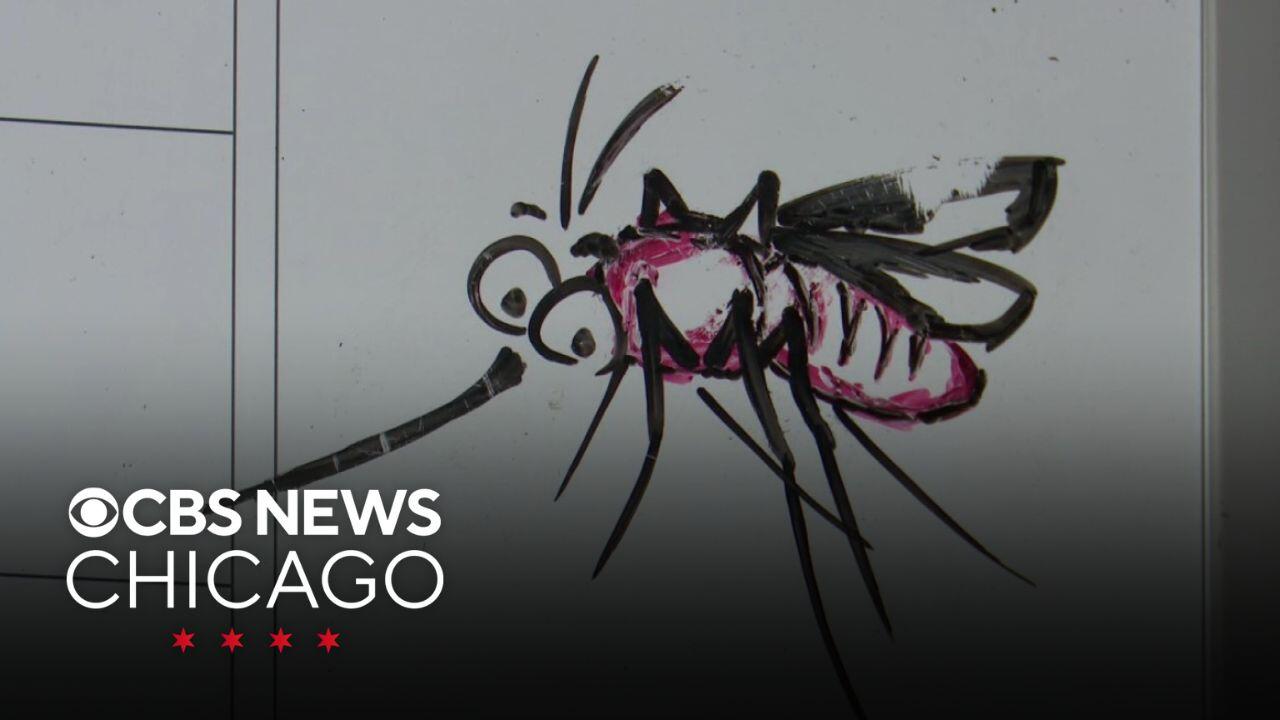College interns trade summer jobs for West Nile virus testing in Will County
A group of college students ditched traditional summer jobs to work on the front lines of combating the West Nile virus.
They're interning as mosquito testers—a job involving many dead insects.
Sarah Tomala, Autumn Allen, and America Rosales head into the woods multiple times a week. Their target? Mosquito traps.
"This is a little bit less than we had last time," Tomala said. "The only time it creeps me out is when there's a big spider on it."
Trudging through trees to collect specimens is only part of their job. Inside the Will County Health Department in Joliet, the college students are also tasked with testing their samples.
The women sort through thousands of mosquitoes a week from 14 traps from across the county. It's tedious tweezer work for a serious public health issue.
"So this is female culex," Rosales said.
West Nile virus is carried by specific species and gender of mosquito – a literal sucker that can kill you.
West Nile virus surfaced in Illinois in 2001. The interns weren't born yet.
"I worked for Arlington Heights Health Department at the time," Will County Health Environmental Health Director Sean Conners said.
Conners was in the lab that found one of the first positive cases in a bird.
"It was a normal day. Not too hot, not too cold, kinda sunny, and it was big news," he said.
Only a year after that, West Nile killed more than 60 people in Illinois.
"Just our traps that we set up, how we do it, and then the methodology to get the results, if it's positive or negative, has changed significantly," Conners said.
Still, it remains a hands-on hunt to locate the deadly problem.
"It's serious. It needs to be tracked. So I think that what we do is important," Tomala said.
The interns found their first positive case from a trap only a day after a visit from CBS News Chicago.
Bug spray is one of the best ways to protect against West Nile.
The public is also reminded to eliminate standing water. Small things, such as a bottle cap full of water, can breed mosquitoes that carry the virus.




